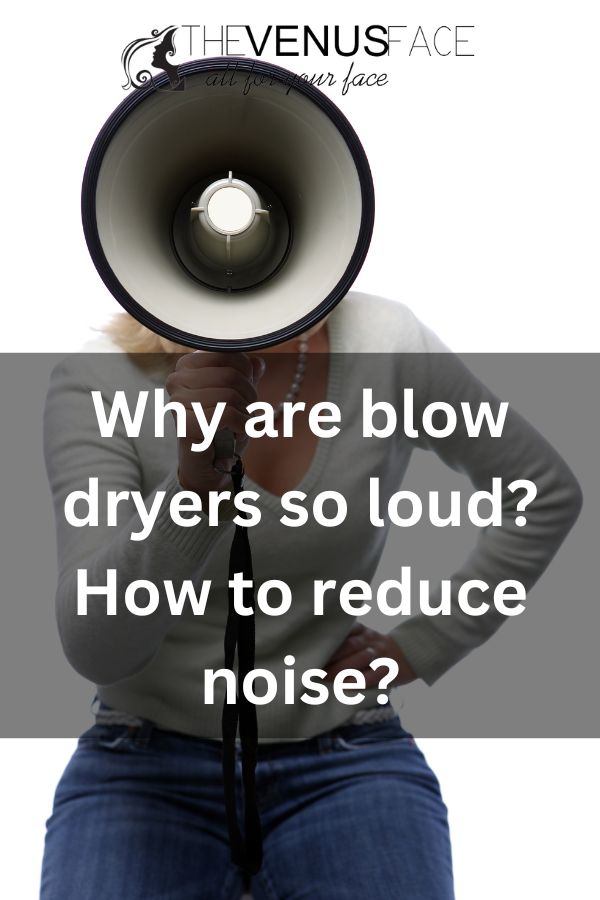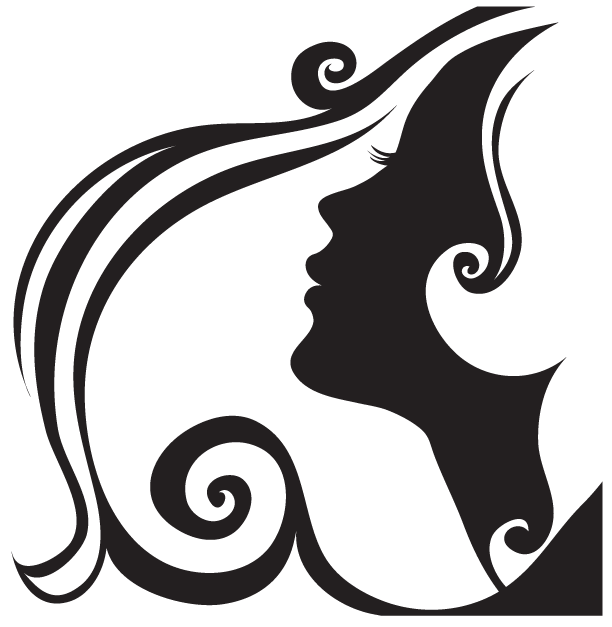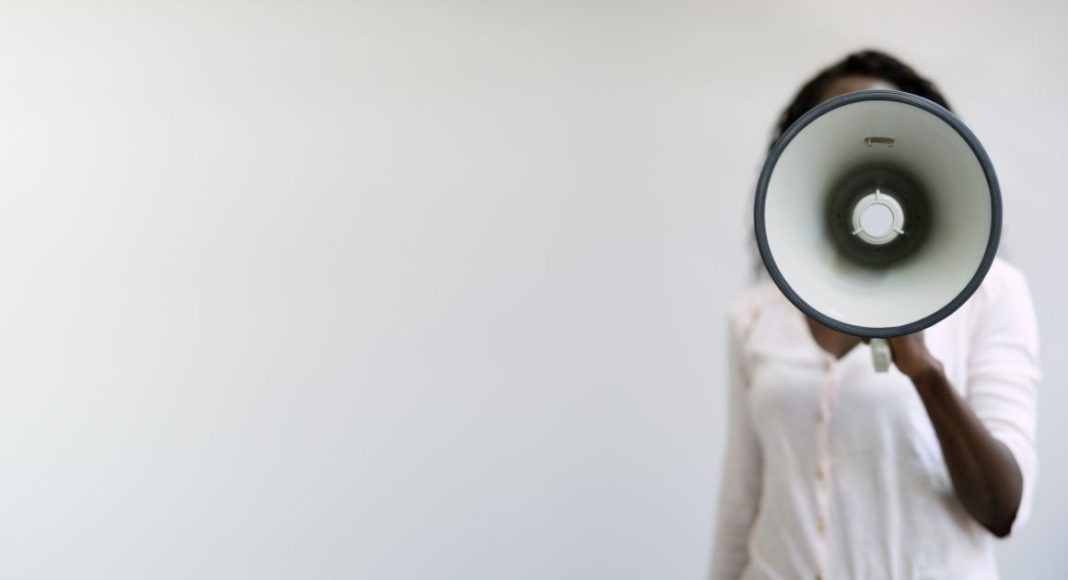Why are hair dryers so loud? A nice question! Sometimes you wish you can use your blow dryer without feeling like you’re launching a rocket in your bathroom. The noise level of hair dryers can be quite bothersome, especially early in the morning or late at night when you’re trying not to disturb others. Maybe you have a love-hate relationship with your blow dryer: you appreciate the convenience it provides in quickly drying and styling your hair, but you can’t help but cringe at the thought of that ear-piercing noise every time you turn it on. In this blog post, we’ll explore the engineering challenges that contribute to the loudness of hair dryers and the potential innovations that could lead to quieter, more pleasant drying experiences.

Why are blow dryers so loud?
Blow dryers are often loud due to several factors related to their design and operation. The noise generated by blow dryers primarily comes from the spinning motor inside and the interaction between electromagnetic and mechanical components. The majority of blow dryers on the market have motors ranging from 1600 to 1800 Watts or even higher, which contributes to the noise level.
The spinning motion of the motor, combined with the airflow created by the dryer, generates the high-pitched noise that is commonly associated with blow dryers. The heavier and more powerful the motor, the louder the noise produced. Additionally, the airflow passing through the nozzle and vents can also contribute to the overall noise level.
However, it’s important to note that not all blow dryers are equally loud. There are quiet hair dryers available that feature lower sound levels. These quiet hair dryers typically have specialized design features and technologies, such as AC motors and improved airflow systems, that help reduce noise.
Quiet hair dryers typically have sound levels ranging from 70 to 90 decibels (dB). Some high-end models can even operate as low as 10 to 30 decibels, which is significantly quieter than the average blow dryer. Manufacturers of quiet hair dryers often focus on minimizing noise emissions to provide a more pleasant and comfortable drying experience for users.
When choosing a blow dryer, you can consider factors such as wattage, the presence of ionic technology, and dual airflow settings, which can have an impact on the noise level produced by the device. It’s worth noting that manufacturers may not always disclose the exact decibel level of their blow dryers, so it can be helpful to rely on real-world reviews and comparisons to gauge their noise performance.
In short, blow dryers can be loud due to the spinning motor and the interaction between electromagnetic and mechanical components. However, there are quiet hairdryers available on the market that utilize specialized design features and technologies to reduce noise levels and provide a more comfortable drying experience.
How can I make my hair dryer quieter?
To make your hair dryer quieter, you can try the following tips and tricks:
Purchase a quiet hair dryer
Look for hair dryers specifically designed to be quiet or have low noise emissions. These hair dryers often feature advanced motor technology and noise-reducing design elements.
List of top-rated blow dryers with low noise:
Insulate the motor
The powerful motor in hair dryers is a major source of noise. You can try insulating the motor by wrapping it with soundproofing materials like acoustic foam or rubber. This can help reduce the vibrations and noise produced by the motor.
Use a diffuser attachment
Attach a diffuser to the end of your hair dryer. A diffuser can help distribute the airflow more evenly and reduce the noise caused by the forceful air hitting your hair.
More: Are Hair Dryer Diffusers Universal?
Clean the air vents
Dust and debris can accumulate in the air vents of your hair dryer, leading to restricted airflow and increased noise. Regularly clean the vents to ensure smooth airflow and quieter operation.
Modify the airflow
Some hair dryers offer multiple speed settings. Lowering the speed or adjusting the airflow settings to a gentler option can help reduce noise while still effectively drying your hair.
Create a barrier
Place a barrier, such as a towel or a folded blanket, between you and the hair dryer while using it. This can help absorb and dampen the sound waves, reducing the noise reaching your ears.
Soundproof the area
If you frequently use a hair dryer in a specific room, consider soundproofing the room itself. Use sound-absorbing materials on the walls, such as acoustic panels or heavy curtains, to minimize noise transmission.
The noise level of a hair dryer depends on various factors, including the motor, fan blades, size, and weight. Quieter hair dryers are often more expensive due to their advanced technology and design. Assess your needs and preferences to choose the best option for you.
Understanding Noise
Before we dive deeper into the noise aspect, let’s take a moment to understand what noise actually is. Noise can be defined as any unwanted or unpleasant sound that disrupts the surrounding environment. It is subjective and varies from person to person. Noise is measured in decibels (dB), a unit that quantifies the intensity of sound. To put it into perspective, a normal conversation typically ranges around 60 dB, while a hair dryer can reach noise levels of 80 dB or higher.
Factors Contributing to Hair Dryer Noise
Several factors contribute to the high noise levels produced by hair dryers. The most significant sources of noise are the motor, the fan, airflow turbulence, vibration, and resonance. The motor, responsible for driving the fan, generates mechanical noise due to its operation. The fan itself also contributes to the overall noise level by producing airflow noise as it spins rapidly. Additionally, the airflow’s turbulence and the vibration and resonance of the hair dryer’s components further amplify the noise.
Design Considerations for Quieter Hair Dryers
Given the annoyance caused by loud hair dryers, manufacturers have been investing in developing quieter models. They employ various design considerations and technologies to minimize noise levels. For instance, insulation is used to reduce noise transmission from the motor and fan. Motor design improvements, such as brushless motors, help reduce noise production. Optimization of fan blades aids in reducing turbulence noise. Some brands have gained recognition for their quieter hair dryer models, incorporating advanced noise reduction techniques.
Balancing Noise and Performance
While reducing noise is desirable, it is crucial to strike a balance between noise reduction and drying efficiency. Manufacturers face the challenge of meeting performance expectations while minimizing noise. Some hair dryers prioritize quietness over-drying speed, resulting in longer drying times. However, several models offer a good compromise between noise levels and drying performance, satisfying the needs of consumers who seek quieter alternatives.
Conclusion
Hair dryers have become a staple in our lives, aiding us in achieving the perfect hairstyle. However, their notorious noise levels often leave us wondering why they are so loud. The noise is mainly produced by the motor, fan, airflow turbulence, vibration, and resonance. Manufacturers are actively working on producing quieter hair dryers by employing insulation, motor design improvements, and optimized fan blades. Why are hair dryers so loud? By understanding the factors contributing to hair dryer noise and following a few tips for noise reduction, you can make your hair-drying experience more pleasant and peaceful.








